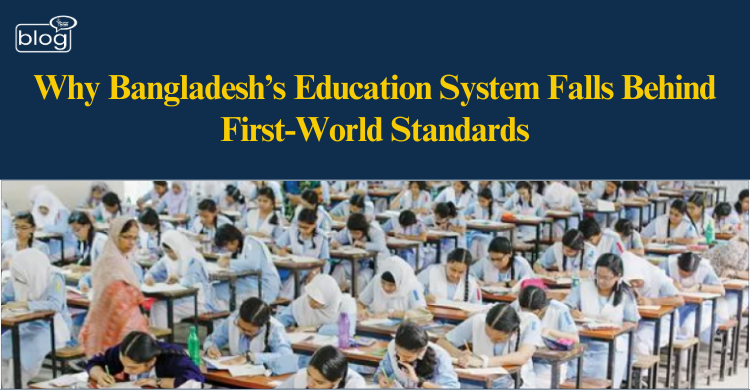As International Literacy Day is upon us, it’s time to take a closer look at Bangladesh’s education system, where the bright sparkle of top grades masks a deeper issue. While many students are getting top grades, the country still has a shortage of skilled workers, which is holding it back from reaching its full potential. This blog will explore the current problems in Bangladesh’s education system and what’s stopping it from achieving great success.
Bangladesh has made some good progress recently. More kids are going to school, girls have more chances to learn, and more students are going to higher education. But even with these improvements, there are still big worries about the quality of education, raising important questions about what needs to be done next.
GPA 5: A Mark of Success or an Illusion?
Each year, hundreds of thousands of students earn a GPA of 5. In 2022, almost 250,000 students scored a GPA of 5 in the SSC exams, and this number keeps growing every year. But does this result really show their true skills and knowledge?
The truth is, that many students who achieve a GPA of 5 struggle when they move on to the next stage, especially at the university level. This makes us wonder: Is a GPA of 5 really a good measure of a student’s overall abilities?
The grading system we use today pushes students to focus on memorization rather than truly understanding the material or thinking creatively. Exam questions often repeat from previous years, leading students to simply memorize answers instead of learning concepts.
Additionally, problems like leaked exam papers, cheating, and other dishonest methods to score well are becoming more common. These issues are making people question whether a GPA of 5 is really as valuable as it seems.
Shortage of Essential Skills:
Schools and universities are not equipping students with the skills needed for today’s job market. As a result:
- Rising unemployment: Many graduates struggle to find jobs.
- Skill gap: Industries can’t find workers with the right skills.
- Dependence on outsourcing: Many jobs have to be handled by foreign experts.
- Lack of competitiveness: Falling behind in global competition.
Limited Research and Innovation:
Bangladeshi universities struggle with research and innovation, which slows down the country’s progress in technology. Some of the main reasons are:
- Lack of labs: Most universities don’t have up-to-date research facilities.
- Gap between industry and universities: Research isn’t often used to solve real-world problems.
- Limited global partnerships: There’s not much collaboration with top research institutions around the world.
- Insufficient funding: Very little money is set aside for research
Focus on Government Jobs
Many graduates in Bangladesh are drawn to government jobs, which limits the growth of entrepreneurship. Here’s why:
- Job security: Government jobs are viewed as stable and secure.
- Social status: Holding a government job is still seen as prestigious.
- Risk aversion: Many people are hesitant to take the risk of starting a business.
- Lack of funds: There’s often not enough money to launch new business.
If this mindset doesn’t shift, it will slow down the creation of new jobs and hinder the country’s economic growth.
Reliance on Foreign Experts for Big Projects
In major projects like the Padma Bridge, Metro Rail, and Rooppur Nuclear Power Plant, Bangladeshi engineers have a limited role. The reason is:
- Padma Bridge: The main work was done by engineers from the Chinese company China Major Bridge Engineering Company (MBEC).
- Metro Rail: Experts from Japanese firms Kawasaki Heavy Industries and Mitsubishi Corporation took the lead.
- Rooppur Nuclear Power Plant: Engineers from Russia’s Rosatom State Atomic Energy Corporation are handling most of the work.
Bangladeshi engineers are mostly just assisting in these projects, which shows that the local education system is not preparing students with the skills needed for such large-scale projects.
With the spotlight on education in Bangladesh, it’s clear that despite the impressive GPA 5 results, the system faces significant challenges. From an outdated evaluation system and limited research opportunities to a shortage of essential skills and an overreliance on foreign experts, these issues reveal deeper problems. To truly advance and compete on a global stage, Bangladesh must address these flaws and shift towards fostering creativity, practical skills, and local expertise. Only then the nation can transform these high grades into real-world success and drive meaningful progress.
To read more blogs like this, click here.
Writer,
Ashura Tabasum Arshi
Intern, Content Writing Department
YSSE.

